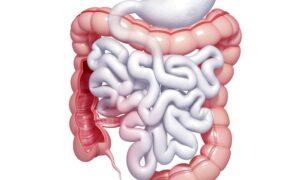Due to its physiology and interaction with other organs, our intestines can be considered one of the most complex organs in the human body. It has its own network of neurons, giving rise to what we call the enteric nervous system, which is responsible for controlling the secretion of digestive substances, the peristaltic movement, and two-way communication with the brain. This communication involves the immune cells, which monitor the presence of foreign substances, and the billions of microorganisms that harmonically constitute our gut microbiota and help the digestion of nutrients and defense against pathogens.
This two-way path is called gut-brain axis, by which metabolites of the intestinal flora, peptide hormones, and neurotransmitters activate neurological and immunological signals in the brain, while the release of neurotransmitters and hormones in the brain triggers neuronal signaling and metabolic pathways in the gut.
In the gut-brain axis, nutrients from the diet can be transformed into important metabolites used in communication with the nervous system. Polysaccharides, such as fibers, can be digested by gut bacteria and give rise to higher levels of short chain fatty acids namely, acetate, propionate and butyrate. These fatty acids can regulate the immune system and influence the secretion of certain hormones and neurotransmitters by intestinal endocrine cells, indirectly affecting dopamine synthesis, release, and metabolism in the brain.
The gut microbiota can also regulate other neurotransmitters through various mechanisms, including the production of neuroactive metabolites. These metabolites produced by the gut microbiota, such as the gamma-aminobutyric acid (GABA) can directly or indirectly transmit signals to the nervous system, influencing human behavior and mood besides being able to participate in the development of neurodegenerative conditions such as Alzheimer’s and Parkinson’s diseases.
But how can our gut influence the development of these diseases?
One of the explanations could be that alterations in the gut microbiota can increase intestinal permeability, leading to inflammatory responses and consequent oxidative stress that influence the production, release and even activity of several neurotransmitters.
In addition, depression and other forms of chronic stress may also be related to an increase in the release of inflammatory mediators. These mediators can induce oxidative stress, leading to disruptions in tryptophan metabolism. Tryptophan is an essential amino acid used for the formation and maintenance of muscles and in the production of serotonin and melatonin, two substances related to human well-being, sleep and mood.
Finally, lifestyle changes associated with a diversified diet rich in vegetables, legumes, fruits, cereals and nuts can positively influence our microbiota, reducing intestinal permeability, the release of inflammatory mediators and oxidative stress, demonstrating both preventive and
therapeutic effects for intestinal and brain health.




















